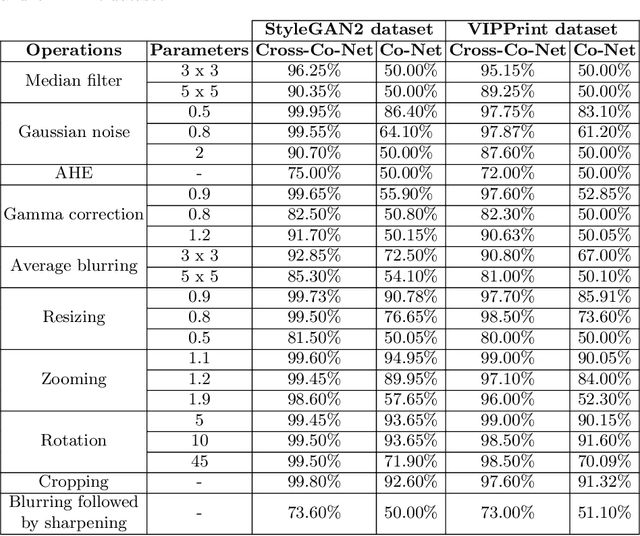Detecting High-Quality GAN-Generated Face Images using Neural Networks
Paper and Code
Mar 03, 2022



In the past decades, the excessive use of the last-generation GAN (Generative Adversarial Networks) models in computer vision has enabled the creation of artificial face images that are visually indistinguishable from genuine ones. These images are particularly used in adversarial settings to create fake social media accounts and other fake online profiles. Such malicious activities can negatively impact the trustworthiness of users identities. On the other hand, the recent development of GAN models may create high-quality face images without evidence of spatial artifacts. Therefore, reassembling uniform color channel correlations is a challenging research problem. To face these challenges, we need to develop efficient tools able to differentiate between fake and authentic face images. In this chapter, we propose a new strategy to differentiate GAN-generated images from authentic images by leveraging spectral band discrepancies, focusing on artificial face image synthesis. In particular, we enable the digital preservation of face images using the Cross-band co-occurrence matrix and spatial co-occurrence matrix. Then, we implement these techniques and feed them to a Convolutional Neural Networks (CNN) architecture to identify the real from artificial faces. Additionally, we show that the performance boost is particularly significant and achieves more than 92% in different post-processing environments. Finally, we provide several research observations demonstrating that this strategy improves a comparable detection method based only on intra-band spatial co-occurrences.
 Add to Chrome
Add to Chrome Add to Firefox
Add to Firefox Add to Edge
Add to Edge